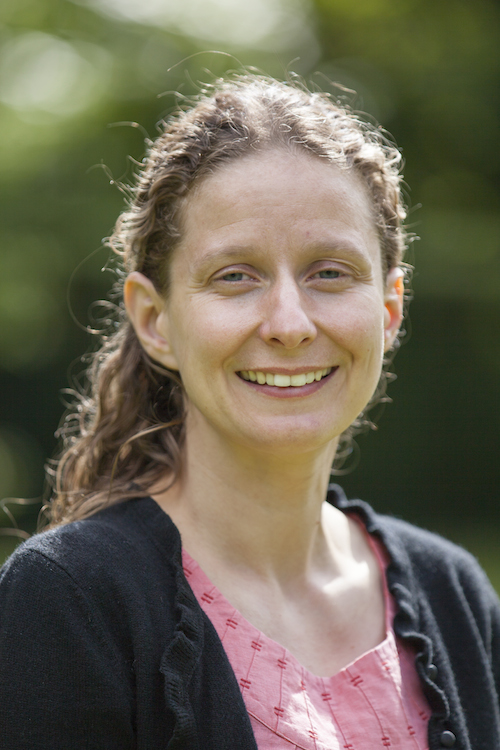
Jeff Jacobs, Pixabay
As I write, Noah’s ark has arrived for a three month stay in Ipswich docks. A half size replica of the vessel described in the Bible, this floating art exhibition will no doubt stir up some discussion and result in some emails in my inbox over the next few months!
Christians often hold different views on certain issues. Some will hold their opinions on particular issues very passionately, and you may do too. So how can we tackle these issues well? How should we express what we think, or work alongside others who hold very different opinions on topics that matter to us?
When it comes to science, there are three main kinds of questions. First, there are ones about how the Bible relates to modern science. Some of these issues have been around for a long time, there are plenty of resources on them, and it should be reasonably straightforward to figure out where you stand – even if it takes some time.
For example, what do the days of creation mean in Genesis 1-3, or how does the flood narrative relate to actual physical events? Most Bible commentaries will touch on these topics, so we can compare what different theologians think about them, exploring online to find out their views in a bit more detail if need be, or looking at some of the recommended resources below. Often these questions are not related to the core of Christian belief, so people often call them secondary or open-hand issues. People in our churches will hold a range of views on them, but we can still work together as the body of Christ.
In this category of Biblical questions, there are some tougher and more emotive ones – such as who were Adam and Eve, what happened to creation at the Fall, and why we suffer – that are much more testing. These questions may have an impact on the way we tell the gospel story, and opinions vary on whether they are primary or secondary issues. All the same, people in your church will probably hold a range of views on them. These are very live issues for seasoned Biblical scholars, so we can’t expect to have everything sorted out. It’s good to know what the range of views is among theologians, so we can at least explain why these are difficult questions to answer.
Another category of questions are the broader theological ones that affect the way we live. These would include our attitude to creation care, leadership, or war. The Bible was written in the context of the ancient Near East, so it takes some work to apply its principles to life today. Some of the questions we ask are not even tackled head on.
For example, slavery is openly condoned in the Old Testament, but with a massive difference to the way it has been practiced in many societies. ‘Slavery’ for the people of Israel was more of an indentured servitude, Old Testament Law states that slaves are allowed to run away, and the New Testament book of Philemon opens the door to the idea that it’s not ok for Christians to keep slaves. It took Christians a while to work out their response to slavery. What seems obvious to us now wasn’t so obvious to people in previous centuries, but eventually Christians (some of whom were slaves or former slaves themselves) played a major role in the abolition of the Afro-Caribbean slave trade.
So humility is key here. We need to keep reading the Bible, listening to wise people, trying to discern general principles and then applying them to our lives. This might take some courage, but also gentleness because these are often very sensitive issues upon which people have cherished views or make very key life decisions. We will all be wrong on at least some of what we think, so we need to keep learning from each other.
Finally, there are detailed practical questions, such as the use of new technologies in medicine and agriculture. The Bible doesn’t give precise instructions on anything to do with modern science, but it does give a very basic toolkit of principles that we can apply, such as valuing every person, tending and keeping creation, and relieving suffering. The result is that Christians very often come up with different answers to difficult questions in this area. Our own views, and the views of others may well change over time as our knowledge of God, his word and the technology available develops. There are some great people thinking about these issues, some of whose work is included in the links below.
So you have found some answers and feel you have a view to share, but what should I do if I find people around you disagreeing with me, sometimes quite passionately? To start with, when is the right time to discuss it – if ever? The gospel Jesus preached was extremely political in a very general sense, but he didn’t always tackle specific issues.
Most importantly, we need to do everything with love. The only people Jesus gave a very hard time to were the hypocritical religious rulers. In every discussion we need to make sure that God gets all the honour, not the one who wins the debate or appears to be most theologically correct. In Philippians 2:3 the apostle Paul writes, “in humility value others above yourselves, not looking to your own interests but each of you to the interests of the others” (NIV). It’s good to ask for advice, accept correction, and readily admit when you realise you were wrong. We will inevitably make mistakes, but what sometimes speaks loudest is the way we apologise.
This post is an abbreviated and slightly edited version of a longer piece on UCCF’s Science Leadership Network blog, reproduced here with permission.
Recommended resources
Commentary series
For Everyone (SPCK), Old Testament by John Goldingay, New Testament by Tom Wright
The Bible Speaks Today (IVP), by a whole range of scholars
Straight to the Heart (Monarch), by Phil Moore. (Doesn’t cover every verse in each book, but picks up the key themes and passages.)
Help with specific science and faith questions
The Faraday Institute for Science and Religion – with short papers, hundreds of recorded lectures, and a section for churches
Christians in Science – especially the series of very short articles, ‘Thinking About’
BioLogos – lots on how evolution & creation can relate to each other
The Christian Medical Fellowship – helpful in ethical issues
bethinking – UCCF’s apologetics website has a science section

© Faraday Institute
Ruth Bancewicz is Church Engagement Director at The Faraday Institute for Science and Religion. She studied Genetics at Aberdeen and Edinburgh Universities, and has worked as a postdoctoral researcher at the Wellcome Trust Centre for Cell Biology in Edinburgh and the Development Officer for Christians in Science. Ruth is a trustee of Christians in Science, and a Fellow of their US counterpart – the American Scientific Affiliation.




